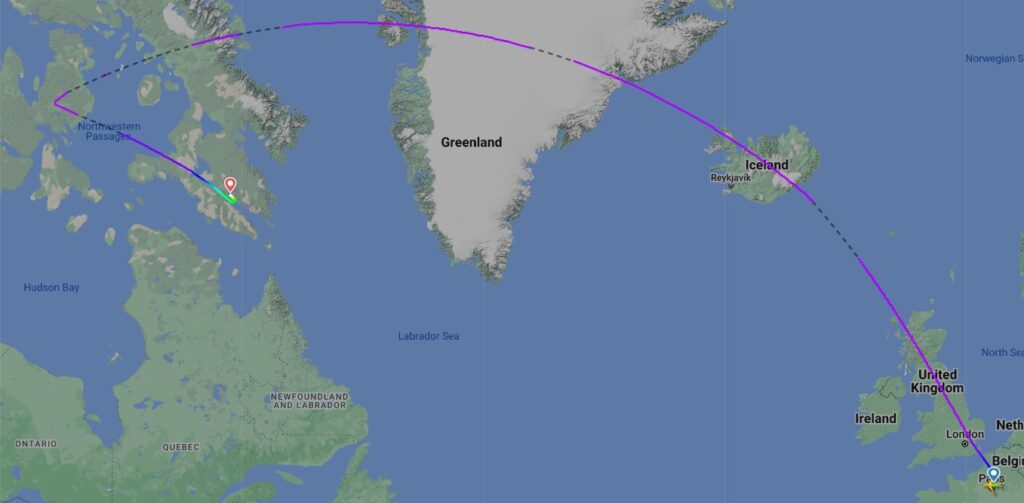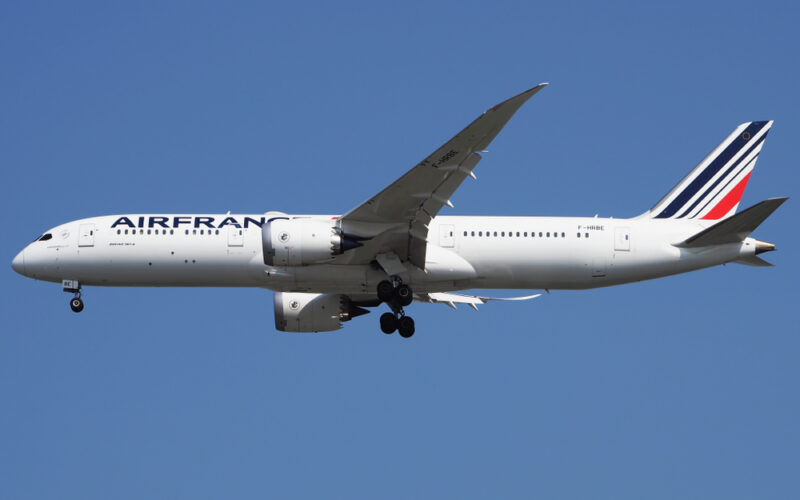An Air France Boeing 787 Dreamliner flying from Paris to Seattle was forced to make an emergency landing in Iqaluit in remote Northern Canada after a burning odor was detected in the flight deck and cabin of the aircraft.
The flight in question was Air France flight AF338 on May 7, 2024, operating from Paris Charles de Gaulle Airport (CDG) to Seattle-Tacoma International Airport (SEA) in Washington State. The flight was being operated by one of the carrier’s Boeing 787-9 Dreamliners registered as F-HRBB and was carrying 262 passengers and crew at the time of the incident.
According to the Aviation Herald, flight AF338 was cruising over northern Canada at 39,000ft (11,887m) when the burning smell was first detected. Having donned their emergency oxygen masks, the flight crew requested an immediate diversion to Iqaluit, positioned around 772km (460 miles) to the left/south of the aircraft’s present position.

The flight initially descended to 36,000ft (10,973m) and proceeded towards Iqaluit Airport (YFB), where it carried out a successful emergency landing about an hour later on runway 34 at Iqaluit. Two airport fire trucks were standing by as well as one City of Iqaluit fire truck, two ambulances, and several vehicles from the Royal Canadian Mounted Police and Canada Border Services Agency.
A conflict then appears to surround the events following the landing. While Air France reported that passengers disembarked the aircraft while ground crews were inspecting the aircraft, passengers took to social media to state that they were kept onboard the aircraft for three to four hours after landing before being allowed to disembark or to call family members who may have been worrying about them.
To recover the incident, the airline canceled its flight AF345 from Montreal to Paris on 7 May 2024, instead using the aircraft tasked with that flight to head to Iqaluit to pick up the stranded passengers. The aircraft used for the rescue mission was Boeing 777-300 registered as F-GSQT. According to Flightradar24, this aircraft flew the passengers from Iqaluit to New York-JFK Airport (JFK) where Air France was to arrange onward transportation to either Seattle or the passengers’ final destination.
Meanwhile, back at Iqaluit, the Boeing 787 appears to still be on the ground at the time of writing, possibly awaiting Air France engineers to arrive to inspect the aircraft before another crew arrives to fly the plane either onwards or to return it to Paris.

